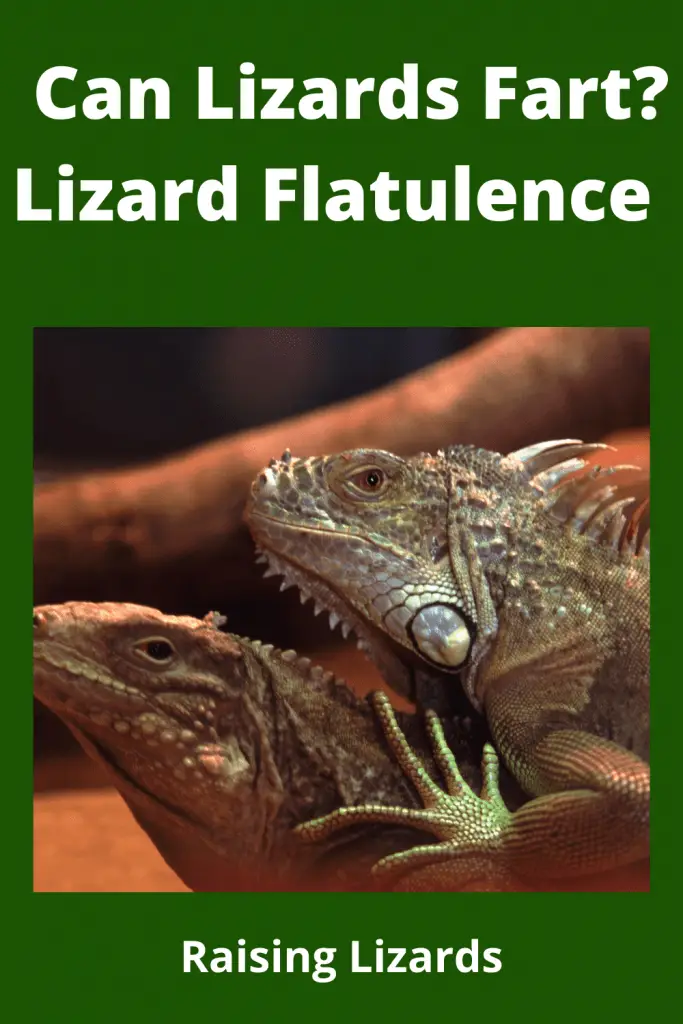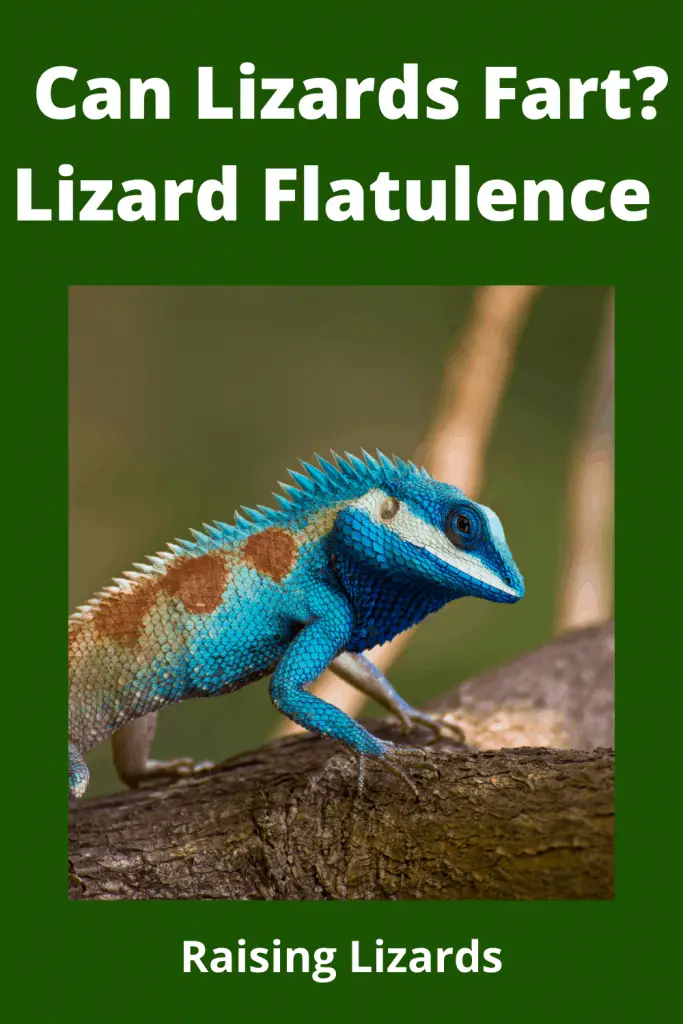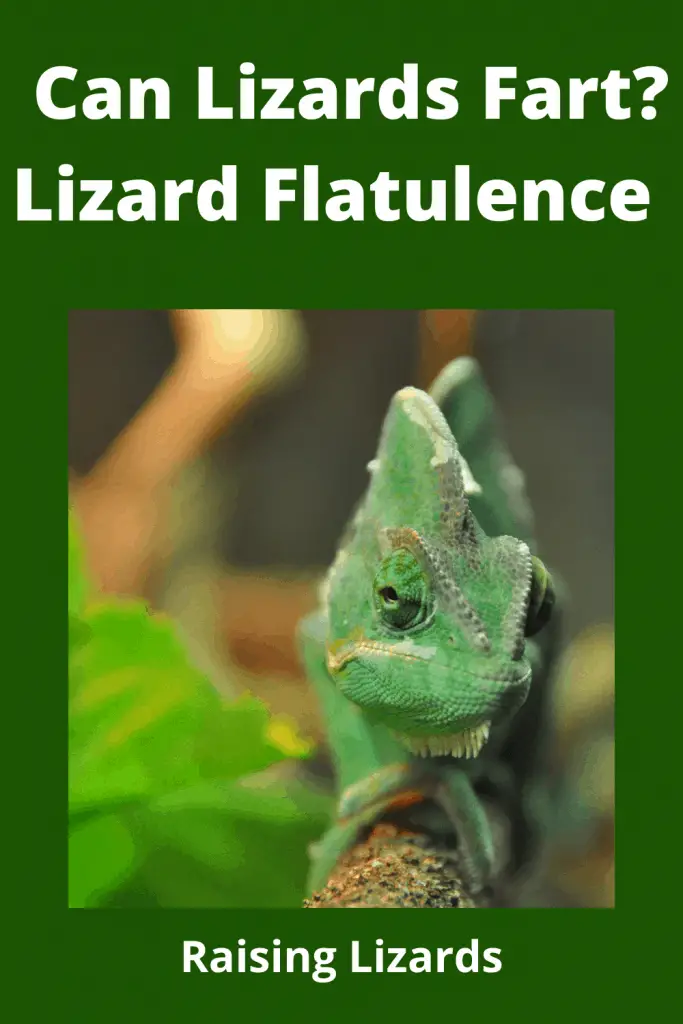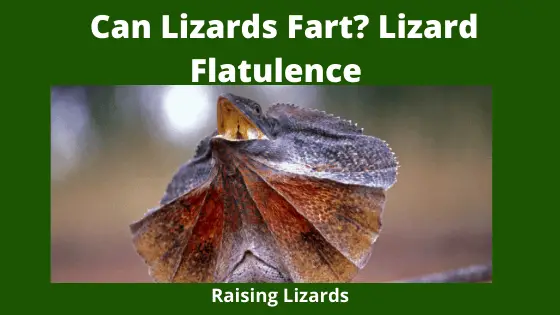As general rule lizards fart/ release gas depending on diet. It is most obvious when they are submerged. The reason behind farting is that there resides a bacterium in their intestines that produce gas. The process of farting enables the lizards to release this gas and usually occurs when they expel waste and are quite loud and smelly.
Do Lizards Fart / Understanding Lizard Farting
Can Lizards Fart? When asked about animals, especially pets, it is testified that most animals, e.g., cats and dogs get gassy and release noxious farts. The bigger the animal is, the harder they honk. Lizards are polyphyletic and mostly belong to the two groups and range in size from chameleons and geckos which are a few cms to 3 m long.
One of the most asked questions is whether these lizards’ farts or not and do they suffer from flatulence or it’s a fart. So, the answer to this question is that, yes lizards do fart but not as frequently as other mammals. The reason behind farting is that there resides a bacterium in their intestines that produce gas. The process of farting enables the lizards to release this gas and usually occurs when they expel waste and are quite loud and smelly. Do Lizards Fart?
The science of fart is not just about the potty humor, by the way.
Are Lizard Farts Contributing to Climate Change
Do Lizards Fart – Some types of eliminating gases e.g., cattle gas are a significant contributor to climate change. One of the hot topics for scientists to engage in is fauna flatulence. Such questions are always fun to capture people’s attention and provide an opportunity to engage a large audience and bring new folks into the conversation. The diets and digestive tracts of animals are important and are a fascinating field of study and gas is just part of that.

A Fart is not actually a scientific term, it’s simply a gas that comes out of the end opposite to the mouth. Intestinal gas is produced as a process of digestion in many animals. The produced gas must be expelled in any manner, either in the form of a burp from the mouth or as a fart from the anus. Here are the causes that are involved in the occurrence of fart and the factors that prevent it from becoming a regular occurrence.
Two Sources of Lizard Farts
Lizards fart, but if they are healthy, the occurrence of farts will be less frequent as there will be less gas in their gastrointestinal tract so, farting is not a common phenomenon in lizards. As the lizard fart, it releases out the gas and air trapped within their body. There are two main sources that cause the production of this gas. The first and the main reason is that the air is released which is swallowed when they eat something. The main gases that make exogenous air are N2, CO2, and O2 and are found within the body of the lizard. The second source of gas is the one produced as a result of digestion. Internal gas is produced in the lizard’s body when the colon breaks down the food and this gas are the endogenous gas. The recognizable smell of fart is due to the oxygen, methane, and other gases that comprise endogenous gas. If you have a pet lizard you will rarely hear them farting. It’s due to the size of your lizard and the amount of gas they release.
The only animals that do not fart are octopuses, sea anemones, and soft-shelled clams.

Factors that Contribute Farting in Lizards:
To understand whether a certain animal passes fart or not, we first need to understand the causes of a fart in the first place. Healthy animals do not fart on the way as warm-blooded animals do, but this happens during defecation. The main role is played by bacteria in the gut as well as by the diet that produces flatulence. If we consider nutrition, lizards fall into three distinct groups’ viz. carnivores, herbivores, and omnivores.
- Carnivores
- Herbivores
- Omnivores
Carnivorous Lizards:
Carnivorous nutrition is one involving the flesh of other animals. Most lizards are carnivores and their diet includes spiders, ants, small mammals, termites, and other lizards. Some lizards feed on snails with their shells, examples include Ciman lizards.
Omnivorous Lizards:
Omnivorous nutrition involves eating meat as well as plants. Their diet depends upon both plant and animal sources. One such example is a Clark spiny lizard that likes a varied diet including fruits, vegetables, and leaves as well as termites and spiders.
Herbivorous Lizards:
Only a small fraction of lizards eat plants that include marine iguana, which is a strictly herbivorous lizard. This lizard feeds typically on algae and lives on Galapagos Island. Other examples include the spiny-tailed agamids and iguanas. Apart from the herbivorous mode of nutrition, lizards do not eat such foods that have or cause the production of bacteria or gases like methane. The lizards with the carnivorous mode of nutrition mostly consume prey with the herbivorous mode of nutrition, so, inadvertently lizards ingest such material. The common reason for gas production is the fibers and starches present in the plant food and matter.
The more fiber and starchy food more will be the likelihood of building upon the gas and farting.
That is why the lizards with the herbivorous mode of nutrition are more likely to fart than the carnivorous lizards. Omnivorous lizards are in between the herbivorous and carnivorous ones. A plant-based diet requires more digestive robustness to break the food.
Factors that Contribute to Avoid Farting:
Trapped gas can be very uncomfortable for any animal. Constipation causes the trapped wind to lead to abdominal pain and bloating as the gases build up in the intestine. If such gases build up in the GIT, it leads to constipation in pet lizards which is scary and is often fatal. The foremost reasons for this issue include the following:
Dehydration:
The scarcity of water is called dehydration and leads to constipation and builds up these gases in the intestine. In order to avoid such an issue, be sure to provide plenty of water to your pet lizard. Omnivorous lizards fulfill the water requirement from the morning dew on fruits and plants. The best way to keep hydrated your pet lizard is to provide them a shallow water container or to spray their bodies several times a day with water mist. Lizards can lick the little droplets of water from their body.
Incorrect diet:
The diet requirement of lizards varies from species to species. Consult a vet to know about your lizard and its specific needs. Feeding the lizard incorrectly will affect the digestive tract of that lizard.
Omnivorous species are not designed to consume an insectivorous diet because insects can only fulfill the high demand of proteins but lack fibers. If you know that your pet lizard is omnivorous, make sure to keep an eye on the fiber percentage in your lizard’s diet.
For insectivorous lizard species, avoid mealworms in the diet as they are high in chitin and cause the gas to build up in the digestive tract.
A well-balanced and nutrient-dense diet is important to ensure the good health of your pet lizard.
GIT with Parasites:
Parasites in the digestive tract can cause constipation as well as can build up gases in the digestive tract of the lizard. If you think your lizard has parasites in the digestive tract, consult a vet as soon as possible. The most common parasites are the tapeworms and roundworms that lead to intestinal blockage which is evident in lizard feces.
The substrate to keep a pet lizard:
Several substrates including sand, gravel, and pellets are often swallowed by the lizard and cause blockage of their digestive tract. An alternative for such substrates is Astroturf which is artificial grass and cannot be ingested by your lizard or you can go for any other carpet-like material.
Other Causes of Flatulence:
Small quantities of air are often swallowed with food and liquid. The swallowed gases are absorbed into the bloodstream and the excess continues its journey through the bowel for expulsion. Normal digestion produces acids that are neutralized by pancreatic secretions and result in gas as a by-product. The bacteria in the digestive tract ferment some of the food components and gas is produced as a by-product of fermentation. Some of the gas is absorbed into the bloodstream and is breathed out of the lungs while the remaining is pushed along the waste material.
The fibers in the food material are essential for the proper functioning of the digestive tract but create excessive gases. The small intestine fails to break down certain components which means extra work for gas-producing intestinal bacteria is required. Another cause of gas built up is the intolerance to lactose. Certain lizard species are susceptible to gas production from the fermentation of carbohydrates like fructose in foods including honey, corn syrup, and other fruits that result in the accumulation of gas and cause farting.

To conclude, we can say that lizards certainly fart. It’s a common saying that if you eat, you excrete, this also includes the built-up of gases in their digestive tract. The lizards with good health and a proper diet don’t fart excessively but are sure that your pet is not suffering from constipation or intestinal impaction. If the gas accumulates in the digestive tract; it could be fatal for the lizard, so you need to monitor your lizard. If you suspect any issues like these, contact your vet as early as possible.
Always keep a check on the hydration requirement of your lizard breed, consider a correct and proper diet according to the breed and keep a check on the substrate to avoid constipation and gas impaction in your lizard. Providing enough water keeps your lizard hydrated and helps to avoid farting, on the other hand, farting is a natural process, and expecting odd farting from your lizard is perfectly normal. Infect farting is healthy and good for your lizard’s body because if the accumulated gas fails to escape from the body, it can lead to the death of the lizard. Accumulating gas in the intestine or holding a fart for a long builds up pressure and sensation of discomfort. The buildup of intestinal gas can trigger abdominal distension and hold for too long means the build-up of the gas will eventually escape via an uncontrollable fart. The truth is, you are unlikely to hear or even smell it.

